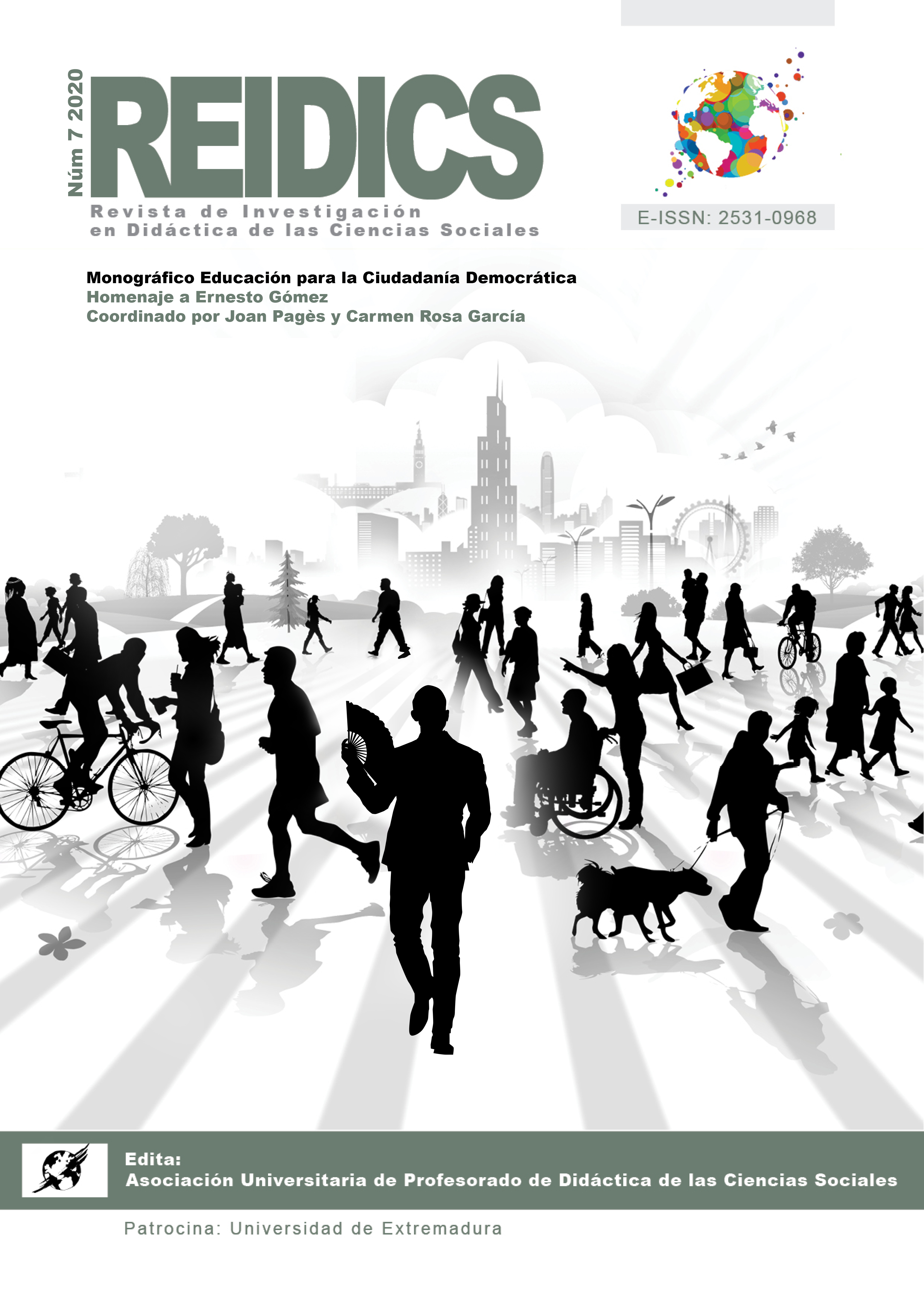Educating on diversity: a research from the Social Sciences in 2nd ESO
DOI:
https://doi.org/10.17398/2531-0968.07.171Keywords:
didactic innovation, educational research, present and past societies, social study education, intercultural educationAbstract
This paper proposes a teaching unit based on action research paradigms, developed with 2nd ESO students during the 2018-2019 and 2019-2020 academic years. The main objective was to work on the development of a democratic citizenship based on peaceful coexistence in multicultural contexts, based on geographic and historical content of the curriculum. A critical didactic proposal is presented, sequenced in various activities that have linked specific materials and resources. This teaching unit includes a final task that works, at the same time, as a research instrument. It is a narrative about the coexistence between cultures that the students have developed. The analysis of the content of these narratives allows us to observe the effectiveness of the methodology of the relationships between past and present, the work of historical sources and the use of controversial issues in the classroom, used in the execution of the didactic proposal. Most of the students verbalize positive opinions towards inclusion and tolerance, using for this reason arguments with consistency, although a greater analysis of the non-visible positions is required. This research has led to the conclusion that more work on historical thinking skills will be necessary, as well as promoting an intercultural vision among students that focuses on asymmetric power relations between social groups.
Downloads
Published
Issue
Section
License
Aquellos autores/as que tengan publicaciones con esta revista, aceptan los términos siguientes:
- Los autores/as conservarán sus derechos de autoría y garantizarán a la revista el derecho de primera publicación de su obra, el cual estará simultáneamente sujeto a la Licencia de reconocimiento de Creative Commons 4.0 BY-NC-SA que permite a terceros compartir la obra siempre que se indique su autor y su primera publicación en esta revista.
- Los autores/as podrán adoptar otros acuerdos de licencia no exclusiva de distribución de la versión de la obra publicada (p. ej.: depositarla en un archivo telemático institucional o publicarla en un volumen monográfico) siempre que se indique la publicación inicial en esta revista.
- Se permite y recomienda a los autores/as difundir su obra a través de Internet (p. ej.: en archivos telemáticos institucionales o en su página web) antes y durante el proceso de envío, lo cual puede producir intercambios interesantes y aumentar las citas de la obra publicada. (Véase El efecto del acceso abierto).
- Los autores y autoras han respetado la política de autoría de esta revista.




